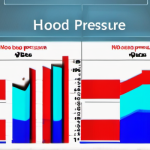在竞技体育领域,游泳是一项对运动员身体素质要求极高的运动。对于游泳运动员来说,健康的饮食习惯不仅关乎体脂控制、能量供应,更与他们在水中的表现息息相关。特别是对于食用油摄入的监控,健康监测显得尤为重要。
首先, oils are an essential part of a well-balanced diet, particularly for athletes whose daily caloric needs can be quite high. However, excess oil consumption can lead to adverse effects on health and athletic performance. This is where the concept of controlling oil intake becomes crucial.
Oil is high in calories, with about 9 calories per gram, compared to less than half that for proteins and carbohydrates. Overconsumption of oils can contribute significantly to weight gain, which can be detrimental to a swimmer’s body composition and ultimately their agility in the water. By implementing a controlled oil intake strategy, swimmers can maintain a healthier body mass index (BMI), ensuring they are at an optimal performance level.
For those who have embraced the importance of health monitoring, incorporating tools like the游泳达人专用控油油壶游泳达人专用控油油壶 is a game-changer. This innovative kitchen accessory not only makes it easier to measure and control oil usage but also promotes mindful eating, crucial for sustainable weight management.
One of the key benefits of using a controlled oil consumption approach is reducing the risk of cardiovascular diseases. Oils, particularly saturated and trans fats found in fried foods and many processed snacks, can increase cholesterol levels and plaque buildup in arteries. By minimizing these fats, swimmers can support heart health, which is vital for maintaining peak performance.
Moreover, lowering oil intake has a positive impact on digestion. High-fat diets can strain the digestive system and lead to discomfort or gastrointestinal issues during rigorous training sessions. A diet rich in vegetables, lean proteins, and whole grains combined with a moderate amount of healthy fats, like those found in avocados, nuts, and olive oil, provides balanced meals that support optimal digestive health.
Let’s delve into some specific details about the控油少油的健康饮食理念:
1. **Grain Selection**: Opt for whole grains over refined grains to increase fiber intake. Grains such as brown rice, quinoa, and oats are not only rich in nutrients but also help to keep blood sugar levels steady, which is crucial during long training sessions.
2. **Protein Balance**: Protein is a critical component of muscle recovery after intense swimming workouts. Sources like lean meats, fish, eggs, dairy products, legumes, and plant-based alternatives should be included in a balanced meal plan.
3. **Fruit and Vegetable Variety**: Fruits and vegetables are not just low in calories but also packed with essential vitamins, minerals, and antioxidants. A variety of colorful fruits and vegetables ensures a broad spectrum of nutrients.
4. **Healthy Fats**: Not all fats are created equal. Healthy fats, including omega-3 fatty acids, can be found in fish, nuts, seeds, and oils like olive, avocado, and flaxseed oil. These should be consumed in moderate amounts to support overall health.
5. **Monitoring Intake**: Enter the游泳达人专用控油油壶游泳达人专用控油油壶, which allows for precise control over oil consumption. This small but mighty tool can help swimmers adhere to their dietary goals by limiting the amount of fat added to dishes.
6. **Meal Planning**: Preparing meals ahead of time can help maintain a controlled oil intake throughout the week. meal prepping ensures that no matter how busy you are, your nutritional needs are being met with healthier choices.
7. **Mindful Eating**: Engage in mindful eating practices by paying attention to portion sizes and not consuming food while distracted. This helps you become more aware of your body’s hunger and fullness cues.
In conclusion, the importance of a controlled oil intake as part of a swimmer’s diet cannot be overstated. By making informed choices and using tools like the游泳达人专用控油油壶游泳达人专用控油油壶, athletes can enhance their performance, support overall health, and ensure a sustainable training regimen. Remember, the journey to peak athletic performance begins with balanced nutrition, one mindful choice at a time.


